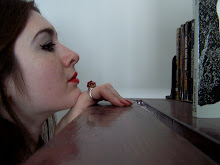Control is a stark film. It is beautiful even when it shouldn’t be, a fitting aesthetic for a film about Joy Division front man, Ian Curtis.
Based on the biography written by Curtis’ widow Deborah, Control tells a more personal story than typical rock films. Curtis (Sam Riley) is at pains to keep wife Debbie (Samantha Morton) away from the band as their fame grows, and as he carries on a disastrous affair with Belgian journalist, Annik Honore (Alexandra Maria Lara).
As the film progresses, Curtis begins to suffer from violent epileptic seizures as his personal life disintegrates. A long list of pills does little to control the increasingly frequent episodes. Isolation and hopelessness overtake him, and one night in May 1980, alone, Curtis hangs himself.
Control marks photographer Anton Corbijn’s feature film directorial debut. His style is perfectly suited to the subject. The images are stark, monochromatic panoramas of a dismal town in northern England, shabby backstage rooms, and bleak domestic settings. This is the genius of Corbijn. Light subtly illuminates the actors in the sparse settings. When Curtis performs, eyes fixed on something beyond his reach, he seems to glow. Maccelsfield is lent an unlikely grandeur. It’s the visual equivalent of Joy Division’s sound.
The actors played the music themselves, and thankfully does it justice. The surviving members of Joy Division, the recently defunct New Order, composed the incidental music.
For a movie about Joy Division there is a surprising sense of humor and levity. Curtis and the other band members are sometimes arrogant, and given to rude jokes with deadpan delivery. Throughout much of the band’s career, Curtis kept his day job in the civil service. They were not instant stars, and international fame was something Curtis would never live to experience.
The performances are unaffected and superb. The actors playing the band bear an uncanny resemblance to their subjects, the characters real and distinct. Samantha Morton turns in a remarkably sensitive performance. Debbie’s love and growing frustration are palpable and understated but poignant.
Sam Riley as Curtis is mesmerizing. An unknown, Riley delivers a debut more impressive than Corbijn’s, successfully tackling the daunting task of portraying Curtis on stage. His Curtis is conflicted and complicated. He hates everyone he loves. His longed for fame turns out to be something he can’t handle. He is terrified and humiliated by his deteriorating health.
The last night of Curtis’ life is obsessively documented. For viewers even remotely familiar with Joy Division, his death comes as no surprise, but it is no less tragic. Corbijn doesn’t soften the edges of Curtis’ depression, and doesn’t let the viewer forget how young he was. Despite the cutting insight of his lyrics, he was only 23 when he died.
This is not a typical rock biopic. Curtis was not a typical rock star. Control is not mythologizing. It treats its subjects with too much honesty and dignity for that. It is a austere, beautiful story of a talented man beaten down by despair and crippled by his loss of control.

No comments:
Post a Comment